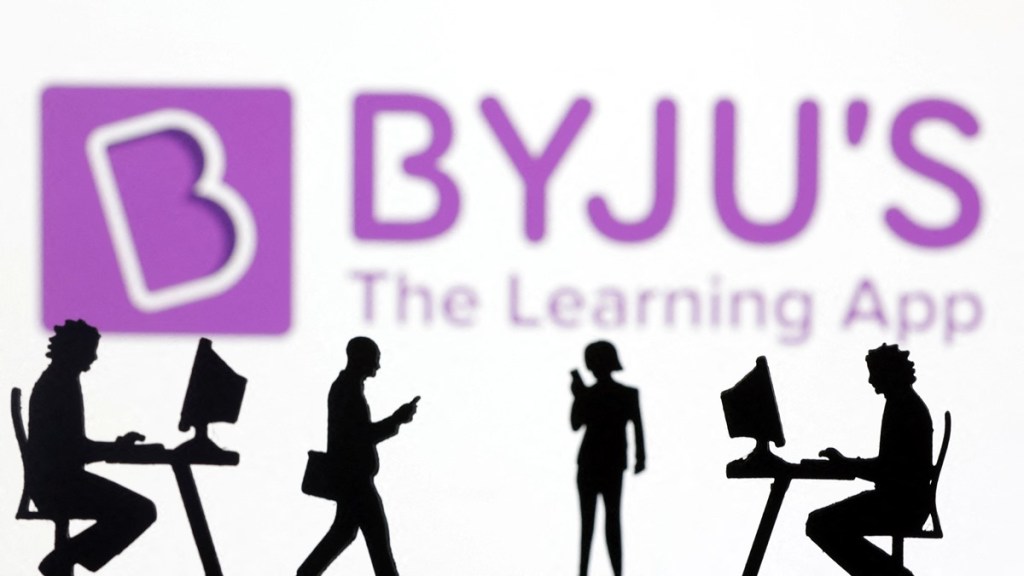Troubled edtech major Byju’s has delayed deposits of the tax deducted at source (TDS) and failed to make the required filings with the income tax (IT) department for employees with a CTC of Rs 30 lakh and above, since April last year, according to sources within the company.
The affected employees allege that the TDS deducted from their salaries from April 2023 onwards do not reflect on their Form 26AS. However, pay slips issued by the employer mention a TDS deduction throughout the period. This implies that the tax has been deducted but has not been deposited or reported to the tax authorities. Post July, their salaries have also not been updated by the employer on Form 26AS, sources added.
In cases where an employer has deducted TDS but not paid to the treasury of government of India, the employer is charged an interest levied at 1.5% for every full or partial month of delay, which is calculated from the date of its deduction to the date on which it was eventually deposited to the Government of India. The employer can make the interest payment before filing TDS returns or demand raised by TRACES. Moreover, the interest paid on such delays are not tax deductible.
Additionally, all defaulting companies face a penalty of Rs.200/day, under section 234E of the IT act (“act”), triggered from the lapse of specified due date, and accumulated until the date of late deposit. However, such a penalty will not exceed the total amount of TDS for which the statement was required to be filed. Also, a penalty from Rs 10,000 to Rs 1 lakh is leviable under Section 271H if a company provides incorrect information or fails to submit the returns within the specified due date.
There is also a prosecution provision in the form of section 276B/ 276BB of the act that deals with such instances and contains criminal prosecution penalties including imprisonment for officials of the company.
“In the past show cause notices have been issued by the income tax department in those cases as well where the company has inadvertently failed to deposit TDS within time and later suo moto deposited tax along with interest. Generally, the Income Tax Department serves a notice under Section 2(35) of the act to the officials of a company before making such an official an accused along with the company in a criminal prosecution”, said Amit Maheshwari, who is a member of the Taxation Committee at FICCI, and someone who has worked on multiple insolvency cases in the past.
“In these cases, the onus to prove that there was a reasonable cause for delay in deposit of TDS is on accused and hence, there is no straight jacket formula to determine what constitutes reasonable cause under Section 278AA of the IT Act and the same will vary from case to case. Proving reasonable cause before the court may be a long legal battle,” Maheshwari added.
“The Central Board of Direct Taxes has formulated the detailed guidelines for compounding of the offences. All the conditions as stipulated under the Compounding Guidelines need to be fulfilled and then only the offence can be compounded. There is a certain time limit within which an application for compounding has to be filed and there is a certain compounding fee involved. However, courts have passed various judgements in which timelines for compounding applications have been held as not compulsory, he added.
“While filings are in the process of being completed, majority of the TDS payments are closed. We are prioritizing this and for any isolated cases the company is striving to close them at the earliest. All Form 16’s will be issued on time as has been done for T&L employees historically,” the company said in a statement.
The development comes at a time when the cash-crunched company is facing an insolvency plea instigated by the BCCI at the NCLT, over the early termination of its sponsorship rights contract for team India’s jersey. The case was adjourned on Wednesday, to February 7.
Byju’s at the latest hearing on Wednesday filed an application to refer the insolvency dispute to an arbitrator. Lawyers representing the edtech contended that there are questions of law and fact involved in the dispute, which could only be adjudicated through arbitration.
“Byju’s was negotiating with the BCCI even last night,” the company’s lawyer, senior advocate Pramod Nair, told the NCLT. The edtech also informed the NCLT that it had filed objections to the BCCI’s insolvency plea against the company.
